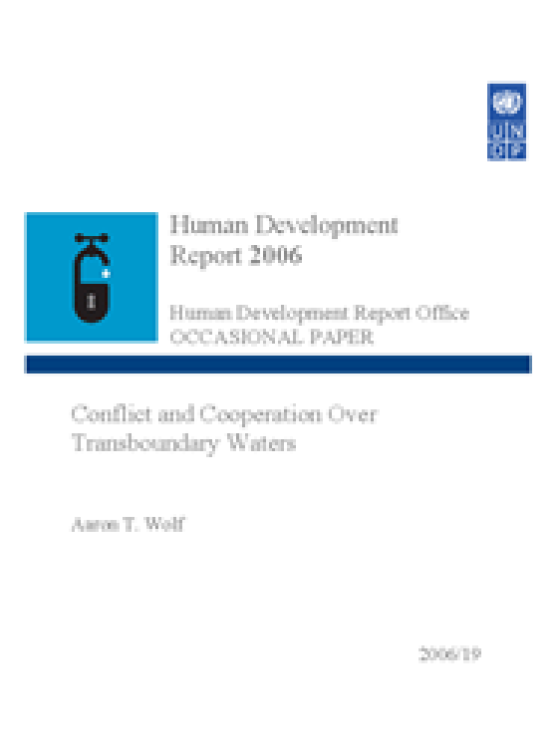Conflict and Cooperation Over Transboundary Waters

Download Report by Language
Document
wolfaaron.pdf
(683.09 KB)
Citation
Wolf, Aaron T.. 2006. Conflict and Cooperation Over Transboundary Waters. New York.
Conflict and Cooperation Over Transboundary Waters
Posted on: January 01, 2006
This paper surveys current thinking on the state of conflict and cooperation over transboundary water resources. Though the potential for outright war between countries over water is low, cooperation is also often missing in disputes over transboundary resources. This background paper examines the issue from environmental, political and human development perspectives. The paper will provide the conceptual basis for understanding cooperation and the costs of non-cooperation over water. It will:
Provide a brief overview of the nature of conflict and experiences of cooperation over transboundary resources.
Offer evidence, from different regions, on the potential costs of non-cooperation or even conflict over water resources. To the extent that establishing modes of cooperation over water takes time, it will evaluate the short and medium term implications.
Analyze different models/examples of cases that countries have used to manage the competition for water resources. Compare and contrast cases such as, but not limited to, the Indus Treaty, Ganges-Brahmaputra basin and the Tigris-Euphrates basin.
Indicate the possible triggers for conflict over water sharing and what implications that has on the livelihoods of ordinary communities.
Evaluate in detail the role of institutions: how can institutional development be defined; what are the different categories of institutions and levels of operation;
what role have they played and what successes have they had in different river and lake basins
Analyze power asymmetries between riparian states and how they affect the outcomes of negotiations. Also, to what extent sub-national governance of local water resources impacts on neighboring countries and national level negotiations.
Propose, to the extent possible, general principles and conclusions on conflict and cooperation, with clear policy objectives.

